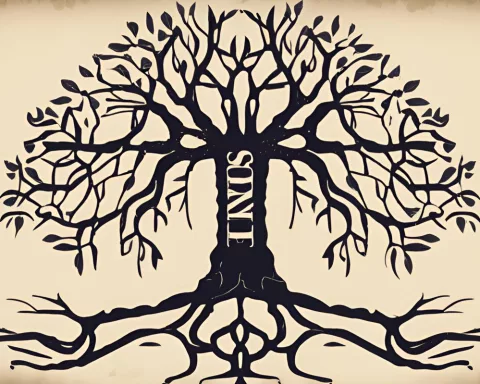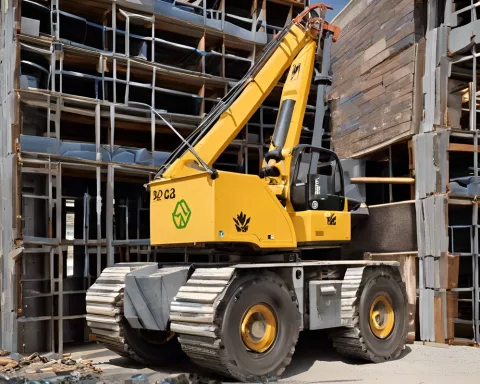In South Africa, apprenticeships are breathing new life into the automotive industry. The Retail Motor Industry Organisation (RMI) and the College of Cape Town are teaming up to train young mechanics, giving them real hands-on experience that makes them job-ready. These programs not only close the skills gap but also help small workshops flourish by bringing in fresh talent and bright ideas. With a strong focus on learning and collaboration, South Africa is shaping a future where skilled mechanics drive innovation and success in the automotive world.
How are apprenticeships transforming South Africa’s automotive industry?
Apprenticeships in South Africa’s automotive industry are crucial for bridging the skills gap. Initiatives by the Retail Motor Industry Organisation (RMI) and the College of Cape Town empower young mechanics through hands-on training, ensuring a skilled workforce adapted to technological advancements and fostering long-term business success.
Empowering the Next Generation of Mechanics
In the vibrant hub of South Africa’s automotive industry, a groundbreaking initiative is laying the groundwork for a prosperous future. The Retail Motor Industry Organisation (RMI) emerges as a leader in fostering skill development, empowering upcoming mechanics through strategic alliances with educational institutions and small and medium enterprises (SMEs). This collaborative endeavor aligns with a vision for a sustainable and dynamic automotive sector, deeply rooted in superior education and practical, hands-on experience.
The College of Cape Town (COCT) stands out as a beacon of excellence in motor mechanic training. Recently honored for its contributions, COCT solidifies its position as a pivotal institution in the region. However, these accolades are not just ceremonial; they signify a profound commitment to nurturing young talent via apprentice programs. These programs, endorsed by accredited workshops, are more than training schemes—they are lifelines connecting budding mechanics with seasoned industry professionals.
Louis van Huyssteen, the National Director of Training for RMI, encapsulates the essence of this movement. “Apprenticeships play a critical role in bridging the skills gap in our sector,” he asserts. His words highlight the dual benefits of such initiatives. Employers who invest in apprentice training not only enhance their immediate workforce but also cultivate a reservoir of talent that will sustain the industry long-term.
The College of Cape Town’s Holistic Approach
COCT’s curriculum is robust, offering a solid theoretical framework. Yet, as Rasheed Adhikari, a facilitator at the college, astutely observes, theoretical knowledge alone falls short. Real-world experience in workshop settings is indispensable. “Our students benefit greatly from hands-on experience, and partnerships with SMEs ensure they develop the technical skills and confidence needed to succeed in the workplace,” Adhikari states. This practical approach is essential for navigating the complexities of trade tests and career challenges, proving that employer engagement is not just beneficial but crucial.
Workshops participating in these apprentice programs report rejuvenated operations. They welcome a wave of motivated young apprentices who bring fresh energy and innovative ideas. SMEs, often the backbone of the automotive sector, demonstrate their capability to transform inexperienced technicians into skilled professionals. This investment in talent development confirms a direct correlation between nurturing employee skills and achieving long-term business success.
These collaborative efforts aim to build a resilient, skilled workforce capable of adapting to rapid technological advancements shaping the automotive industry. The commitment to developing young talent ensures that the sector remains robust and competitive. In a world where technological evolution can render skills obsolete almost overnight, the need for continuous learning and adaptation cannot be overstated.
Historical Parallels and Modern Success Stories
The historical context of apprenticeships is rich and varied. In medieval Europe, master craftsmen took on young apprentices, teaching them the intricacies of the trade in exchange for labor. This symbiotic relationship ensured the transfer of knowledge across generations. Much like its historical counterparts, today’s apprenticeships in the automotive sector extend beyond mere skill acquisition. They instill a sense of purpose and belonging in the industry.
Anecdotes from participating SMEs highlight the tangible benefits of these programs. One workshop owner recounted the story of a young apprentice who, despite initial inexperience, quickly became an invaluable team member. Through rigorous training and mentorship, this apprentice not only mastered technical skills but also contributed innovative solutions that improved the workshop’s efficiency. Such stories underscore the transformative power of apprenticeship programs.
The artistic movements of the Renaissance period, known for their emphasis on learning and technique, offer a parallel to the current focus on skill development in the automotive sector. Just as Renaissance artists refined their craft through apprenticeships, modern-day mechanics hone their skills through hands-on training. This blend of artistic tradition and technical prowess creates a workforce that is both skilled and adaptable.
Broader Economic Impact and Future Prospects
In the broader context of South Africa’s economic landscape, the role of SMEs cannot be underestimated. These enterprises are not just economic units; they are community pillars that provide employment and drive local economies. By investing in apprentice programs, SMEs are not only securing their future but also contributing to the community’s socioeconomic well-being.
The success of these initiatives underscores the importance of industry-academic collaboration. The seamless integration of academic knowledge and practical experience creates a holistic learning environment. This environment prepares students not just for their first job but for lifelong careers in the automotive industry. The COCT and its partner workshops exemplify this synergy, creating a model that other sectors could emulate.
The narrative of skill development in South Africa’s automotive sector is one of hope, resilience, and forward-thinking. Institutions like the RMI and the COCT play leading roles, supported by the unsung heroes—the SMEs and their dedicated mentors. Their collective efforts are not only shaping individual futures but also driving the industry towards a horizon of innovation and sustainability.
Historical parallels, artistic analogies, and real-world success stories weave together to form a tapestry of growth and development. This tapestry reflects a commitment to excellence and a vision for a future where skilled mechanics are the cornerstone of a thriving automotive industry. Through initiatives like these, South Africa is not just keeping pace with global advancements but is poised to set new benchmarks in automotive skill development.
FAQ about Apprenticeships in South Africa’s Automotive Industry
What are the benefits of apprenticeships in the automotive industry?
Apprenticeships provide hands-on training and real-world experience, which are essential for closing the skills gap in the automotive sector. They empower young mechanics, enhance the workforce of participating employers, and foster innovation and success in small and medium enterprises (SMEs).
How does the College of Cape Town contribute to apprenticeship programs?
The College of Cape Town (COCT) offers a robust curriculum that combines theoretical knowledge with practical experience. Through partnerships with SMEs, COCT ensures that students develop the necessary technical skills and confidence to thrive in the automotive industry.
Who is involved in the apprenticeship initiatives?
The Retail Motor Industry Organisation (RMI) and the College of Cape Town are leading the charge, collaborating with small and medium enterprises to create effective apprenticeship programs that nurture young talent and bridge the skills gap in the industry.
Why are small and medium enterprises important in this context?
SMEs are vital to the automotive sector as they provide employment and support local economies. By investing in apprenticeship programs, these enterprises not only secure their future but also contribute to the overall socioeconomic well-being of their communities.
What does the apprenticeship experience entail?
Apprenticeships involve a combination of classroom learning and hands-on experience in workshop settings. This dual approach prepares apprentices for trade tests and equips them with the skills necessary to succeed and adapt to the rapid technological advancements in the automotive industry.
How do apprenticeships impact the future of the automotive industry in South Africa?
Apprenticeships play a crucial role in creating a skilled and resilient workforce capable of adapting to technological changes. By fostering collaboration between academic institutions and the industry, these programs ensure that the automotive sector remains competitive and innovative in the global market.












